Related Research Articles
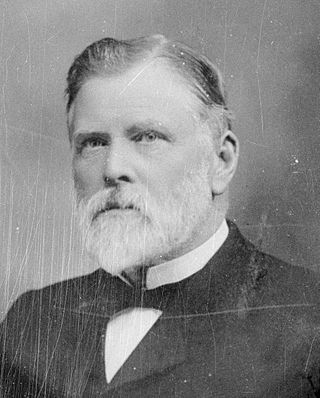
John Duthie was a politician and businessman in New Zealand. Originally from Scotland, he came to Auckland in 1863. He set up his own ironmongery in New Plymouth, then Wanganui, and he finally settled in Wellington. In the latter city, he was mayor for one term. He then represented Wellington in Parliament for a total of eleven years. For the last two years of his life, he was appointed to the New Zealand Legislative Council.
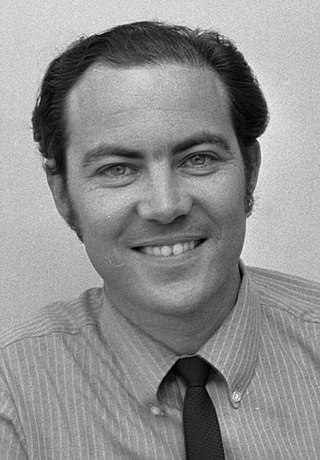
John James Terris is a New Zealand politician, priest and broadcaster who represented the Labour Party in the New Zealand parliament.

Henry Leonard James May was a New Zealand politician of the Labour Party. He was a cabinet minister from 1972 to 1975.
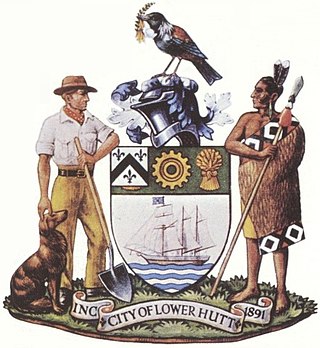
The city of Lower Hutt, New Zealand, was first proclaimed a borough on 1 February 1891. Prior to this it had been part of Hutt County, initially as a Roads Board and from 1881 as a Town Board.
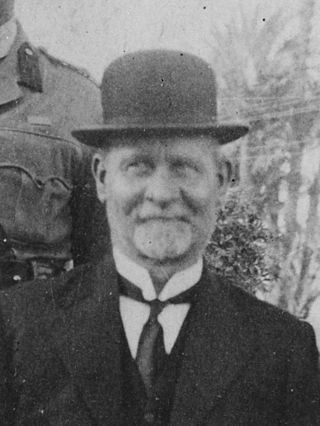
The mayor of Blenheim officiated over the borough of Blenheim, New Zealand. The office was created in 1869 when Blenheim became a borough, and ceased with the 1989 local government reforms, when Blenheim Borough was amalgamated with Picton Borough and Marlborough County Council to form Marlborough District. There were 31 mayors of Blenheim. The last mayor of Blenheim, Leo McKendry, was elected as the first mayor of Marlborough.
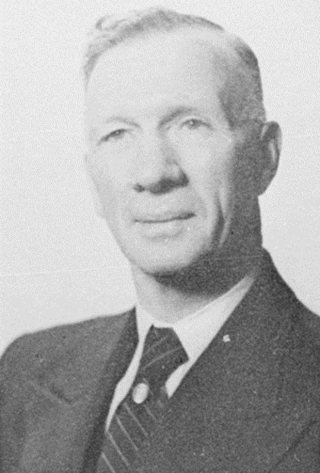
James Cumming was a New Zealand trade unionist and politician.
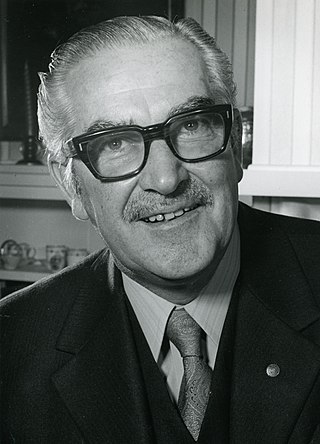
Sir John Kennedy-Good was a New Zealand politician. He was mayor of Lower Hutt from 1970 to 1986.

The 1941 Wellington City mayoral election was part of the New Zealand local elections held that same year. In 1941, elections were held for the Mayor of Wellington and fifteen city councillors plus seats on the Wellington Hospital Board and Wellington Harbour Board. The polling was conducted using the standard first-past-the-post electoral method.

The 1935 Lower Hutt mayoral election was part of the New Zealand local elections held that same year. The elections were held for the role of Mayor of Lower Hutt plus other local government positions including the nine borough councillors, also elected biannually. The polling was conducted using the standard first-past-the-post electoral method.
The Mayor of Petone officiated over the Petone Borough of New Zealand, which was administered by the Petone Borough Council. The office existed from 1882 until 1989, when Petone Borough was amalgamated into the Hutt City Council as part of the 1989 local government reforms. There were seventeen holders of the office.

The 1965 Lower Hutt mayoral election was part of the New Zealand local elections held that same year. The elections were held for the role of Mayor of Lower Hutt plus other local government positions including fifteen city councillors, also elected triennially. The polling was conducted using the standard first-past-the-post electoral method.

The 1968 Lower Hutt mayoral election was part of the New Zealand local elections held that same year. The elections were held for the role of Mayor of Lower Hutt plus other local government positions including fifteen city councillors, also elected triennially. The polling was conducted using the standard first-past-the-post electoral method.
The 1989 Lower Hutt mayoral election was part of the New Zealand local elections held that same year. The elections were held for the role of Mayor of Lower Hutt plus other local government positions including fifteen city councillors, also elected triennially. The polling was conducted using the standard first-past-the-post electoral method.

The 1931 Lower Hutt mayoral election was part of the New Zealand local elections held that same year. The elections were held for the role of Mayor of Lower Hutt plus other local government positions including the nine borough councillors, also elected biennially. The polling was conducted using the standard first-past-the-post electoral method.

The 1927 Lower Hutt mayoral election was part of the New Zealand local elections held that same year. The elections were held for the role of Mayor of Lower Hutt plus other local government positions including the nine borough councillors, also elected biennially. The polling was conducted using the standard first-past-the-post electoral method.

The 1925 Lower Hutt mayoral election was part of the New Zealand local elections held that same year. The elections were held for the role of Mayor of Lower Hutt plus other local government positions including the nine borough councillors, also elected biennially. The polling was conducted using the standard first-past-the-post electoral method.

The 1921 Lower Hutt mayoral by-election was triggered by the resignation of the incumbent, Percy Rishworth, just eight months after he had been re-elected for a third term. The polling was conducted using the standard first-past-the-post electoral method.
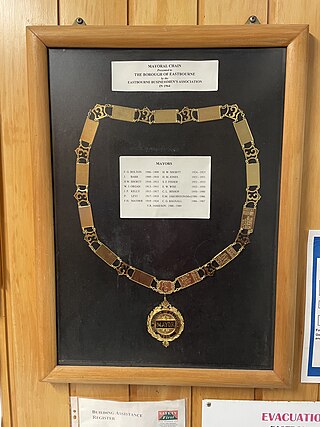
The Mayor of Eastbourne officiated over the Eastbourne Borough of New Zealand, which was administered by the Eastbourne Borough Council. The office existed from 1906 until 1989, when Eastbourne Borough was amalgamated into the Hutt City Council as part of the 1989 local government reforms. There were fourteen holders of the office.
Joseph Mitchell Huggan was an English-born New Zealand politician.

Lily Annie Huggan was an English-born New Zealand politician.
References
- ↑ "The School Morality Question". The Evening Post . Vol. XXXVI, no. 27. 1 August 1888. p. 2.
- ↑ "Borough of Petone - Election of Mayor". The Evening Post . Vol. XXXVI, no. 121. 20 November 1888. p. 3.
- ↑ "Petone Borough Council - Election of Mayor". The Evening Post . Vol. XXXVIII, no. 129. 28 November 1889. p. 3.
- ↑ "Petone Borough Council - Election of Mayor". The Evening Post . Vol. XL, no. 120. 18 November 1890. p. 3.
- ↑ "Petone Borough Council - Election of Mayor". The Evening Post . Vol. XLII, no. 128. 26 November 1891. p. 3.
- ↑ "Petone Borough Council - Election of Mayor". The Evening Post . Vol. XLIV, no. 130. 1 December 1892. p. 3.
- ↑ "Petone Borough Council - Election of Mayor". The Evening Post . Vol. XLVI, no. 130. 30 November 1893. p. 3.
- ↑ "Mayoral Elections". New Zealand Mail. No. 1186. 23 November 1894. p. 13.
- ↑ "Mayor of Petone". Colonist. Vol. XXXIX, no. 8404. 13 November 1895. p. 4.
- ↑ "The Mayoral Elections". New Zealand Mail. No. 1290. 19 November 1896. p. 35.
- ↑ "Mayoral Elections". New Zealand Mail. No. 1342. 18 November 1897. p. 38.
- ↑ "Mayoralty Elections". The Evening Post . Vol. LVI, no. 121. 18 November 1898. p. 6.
- ↑ "Petone". The Evening Post . Vol. LVIII, no. 119. 16 November 1899. p. 6.
- ↑ "Petone Borough". The Evening Post . Vol. LXI, no. 96. 25 April 1901. p. 2.
- ↑ "Petone". The Evening Post . Vol. LXIII, no. 103. 1 May 1902. p. 5.
- ↑ "Petone". The Evening Post . Vol. LXV, no. 101. 30 April 1903. p. 5.
- ↑ "Petone Borough Council - Election of Mayor". The Evening Post . Vol. LXVII, no. 100. 28 April 1904. p. 6.
- ↑ "Borough of Petone - Election of Mayor". New Zealand Times. Vol. LXXVII, no. 5569. 22 April 1905. p. 7.
- ↑ "Petone Borough Council - Mayoral Election". The Evening Post . Vol. LXXI, no. 99. 27 April 1906. p. 6.
- ↑ "Petone Borough Council - Election of Mayor". The Evening Post . Vol. LXXIII, no. 97. 25 April 1907. p. 1.
- ↑ "Petone Borough - Election of Mayor". New Zealand Times. Vol. XXX, no. 6501. 23 April 1908. p. 8.
- ↑ "Petone Borough Council - Election of Mayor". The Evening Post . Vol. LXXVII, no. 95. 23 April 1909. p. 10.
- ↑ "Petone Borough Council - Election of Mayor". The Evening Post . Vol. LXXIX, no. 92. 20 April 1910. p. 8.
- ↑ "Petone". The Dominion . Vol. 4, no. 1106. 20 April 1911. p. 6.
- ↑ "Petone Borough Council - Election of Mayor". The Evening Post . Vol. LXXXIII, no. 98. 25 April 1912. p. 8.
- ↑ "Petone". The Dominion . Vol. 6, no. 1744. 8 May 1913. p. 6.
- ↑ "Petone". The Evening Post . Vol. LXXXVII, no. 92. 20 April 1914. p. 8.
- ↑ "Petone". The Evening Post . Vol. LXXXIX, no. 100. 29 April 1915. p. 3.
- ↑ "Borough of Petone - Biennial Election of Mayor". The Evening Post . Vol. XCIII, no. 101. 28 April 1917. p. 2.
- ↑ "Borough of Petone - Biennial Election of Mayor". The Evening Post . Vol. XCVII, no. 102. 2 May 1919. p. 2.
- ↑ "Petone". The Evening Post . Vol. CI, no. 100. 28 April 1921. p. 9.
- ↑ "Petone". The Dominion . Vol. 16, no. 187. 27 April 1923. p. 8.
- ↑ "Petone". The Evening Post . Vol. CIX, no. 99. 30 April 1925. p. 9.
- ↑ "Suburban Returns - Petone". The Evening Post . Vol. CXIII, no. 98. 28 April 1927. p. 14.
- ↑ "Petone Borough - Mayor Re-Elected". The Evening Post . Vol. CVII, no. 88. 17 April 1929. p. 11.
- ↑ "Municipal Elections". The Dominion . Vol. 24, no. 177. 23 April 1931. p. 13.
- ↑ "Petone". The Evening Post . Vol. CXV, no. 103. 4 May 1933. p. 13.
- ↑ "Petone Borough - The New Mayor". The Evening Post . Vol. CXVIII, no. 86. 9 October 1934. p. 11.
- ↑ "Petone Borough Council". The Evening Post . Vol. CXIX, no. 109. 10 May 1935. p. 8.
- ↑ "Petone Borough Council - Declaration of Poll". The Evening Post . Vol. CXXV, no. 113. 16 May 1938. p. 2.
- ↑ "Civic Elections". The Evening Post . Vol. CXXXI, no. 104. 5 May 1941. p. 9.
- ↑ "Borough of Petone - Declaration of Poll". The Evening Post . Vol. CXXXVII, no. 127. 31 May 1944. p. 3.
- ↑ "Borough of Petone - Declaration of Poll". The Evening Post . 25 November 1947. p. 3.
- ↑ "Borough of Petone - Declaration of Poll - Election of Mayor". The Evening Post . 28 November 1950. p. 2.
- ↑ "Mayor's Elected Unopposed". The Evening Post . 2 November 1953. p. 10.
- ↑ "Petone". The Evening Post . 19 November 1956. p. 7.
- ↑ "Mrs. Huggan is Petone's New Mayor". The Evening Post . 24 September 1957.
- ↑ "Petone Avalanche". The Evening Post . 23 November 1959. p. 10.
- ↑ "Borough of Petone - Declaration of Poll Results". The Evening Post .
- ↑ "Borough of Petone - Declaration of Poll Results". The Evening Post .
- ↑ "Mr Love Back as Petone's Mayor". The Evening Post . 20 March 1967. p. 9.
- ↑ "Borough of Petone - Declaration of Result of Election of Mayor". The Evening Post . 18 October 1968. p. 35.
- ↑ "Borough of Petone - Election of Mayor". The Evening Post . 14 October 1971. p. 31.
- ↑ "Borough of Petone - Declaration of Result of Election of Election of Mayor". The Evening Post . 18 October 1974. p. 21.
- ↑ "Borough of Petone - Declaration of Result of Election". The Evening Post . 15 October 1977. p. 30.
- ↑ "Borough of Petone - Declaration of Result of Election". The Evening Post . 18 October 1980. p. 22.
- ↑ "Declaration of Result of Election - Borough of Petone". The Evening Post . 18 October 1983. p. 40.
- ↑ "Declaration of Result of Election - Borough of Petone". The Dominion . 17 October 1986. p. 22.